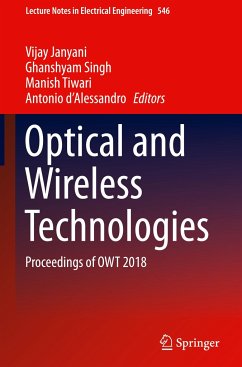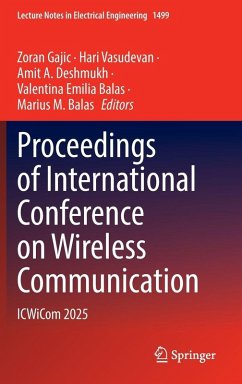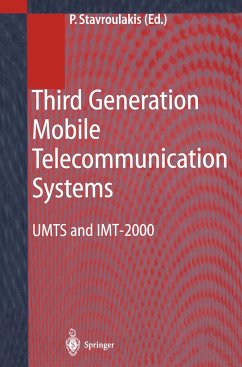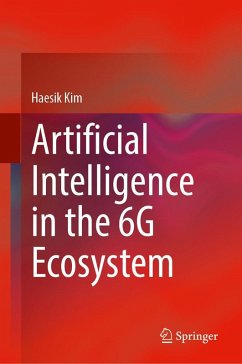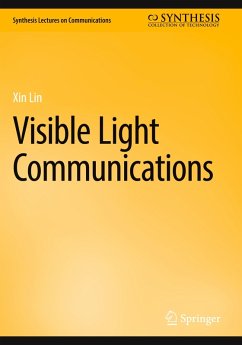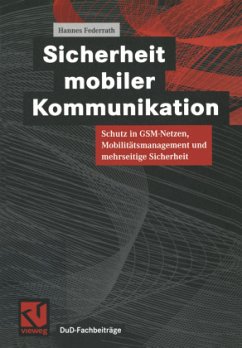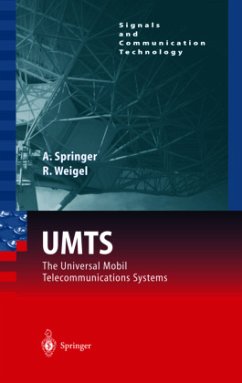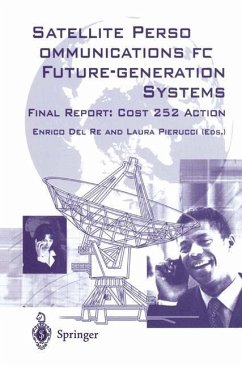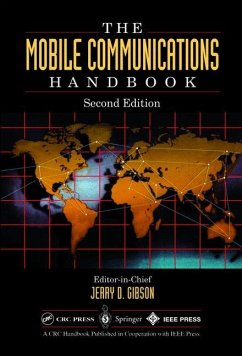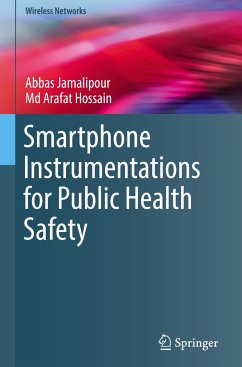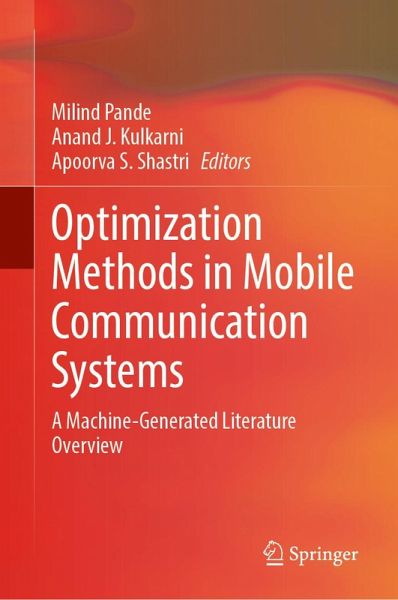
Optimization Methods in Mobile Communication Systems
A Machine-Generated Literature Overview
Herausgegeben: Pande, Milind; Kulkarni, Anand J.; Shastri, Apoorva S.

PAYBACK Punkte
67 °P sammeln!
This book presents the result of an innovative challenge, to create a systematic literature overview driven by machine-generated content. This machine-generated volume, with chapter introductions by the human expert, of summaries of the existing studies furthers our understanding of the optimization methods in mobile communication systems. The book provides a machine generated comprehensive yet classified review of the optimization methods, techniques and approaches associated with different mobile communications and systems including wavelet-based CR-OFDM systems, MIMO slot antenna with low m...
This book presents the result of an innovative challenge, to create a systematic literature overview driven by machine-generated content. This machine-generated volume, with chapter introductions by the human expert, of summaries of the existing studies furthers our understanding of the optimization methods in mobile communication systems. The book provides a machine generated comprehensive yet classified review of the optimization methods, techniques and approaches associated with different mobile communications and systems including wavelet-based CR-OFDM systems, MIMO slot antenna with low mutual coupling for 5G networks, etc. It also covers mainly the techniques for performance analysis of MIMO systems such as the hybrid filtering technique for MIMO-OFDM systems and artificial intelligence solutions beyond 5G radio access networks.
Questions and related keywords were prepared for the machine to query, discover, collate and structure by Artificial Intelligence (AI) clustering. The AI-based approach seemed especially suitable to provide an innovative perspective as the topics are indeed both complex, interdisciplinary and multidisciplinary. Springer Nature has published much on these topics in its journals over the years, so the challenge was for the machine to identify the most relevant content and present it in a structured way that the reader would find useful. The automatically generated literature summaries in this book are intended as a springboard to further discoverability. They are particularly useful to readers with limited time, looking to learn more about the subject quickly and especially if they are new to the topics. Springer Nature seeks to support anyone who needs a fast and effective start in their content discovery journey, from the undergraduate student exploring interdisciplinary content to Master- or PhD-thesis developing research questions, to the practitioner seeking support materials, this book can serve as an inspiration, to name a few examples.
It is important to us as a publisher to make advances in technology easily accessible to our authors and find new ways of AI-based author services that allow human-machine interaction to generate readable, usable, collated, research content.
Questions and related keywords were prepared for the machine to query, discover, collate and structure by Artificial Intelligence (AI) clustering. The AI-based approach seemed especially suitable to provide an innovative perspective as the topics are indeed both complex, interdisciplinary and multidisciplinary. Springer Nature has published much on these topics in its journals over the years, so the challenge was for the machine to identify the most relevant content and present it in a structured way that the reader would find useful. The automatically generated literature summaries in this book are intended as a springboard to further discoverability. They are particularly useful to readers with limited time, looking to learn more about the subject quickly and especially if they are new to the topics. Springer Nature seeks to support anyone who needs a fast and effective start in their content discovery journey, from the undergraduate student exploring interdisciplinary content to Master- or PhD-thesis developing research questions, to the practitioner seeking support materials, this book can serve as an inspiration, to name a few examples.
It is important to us as a publisher to make advances in technology easily accessible to our authors and find new ways of AI-based author services that allow human-machine interaction to generate readable, usable, collated, research content.



